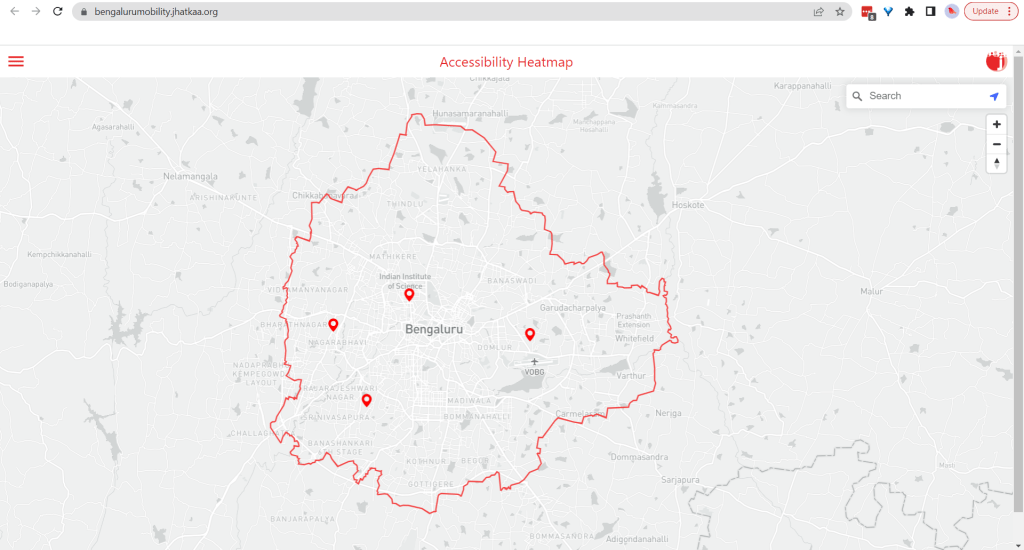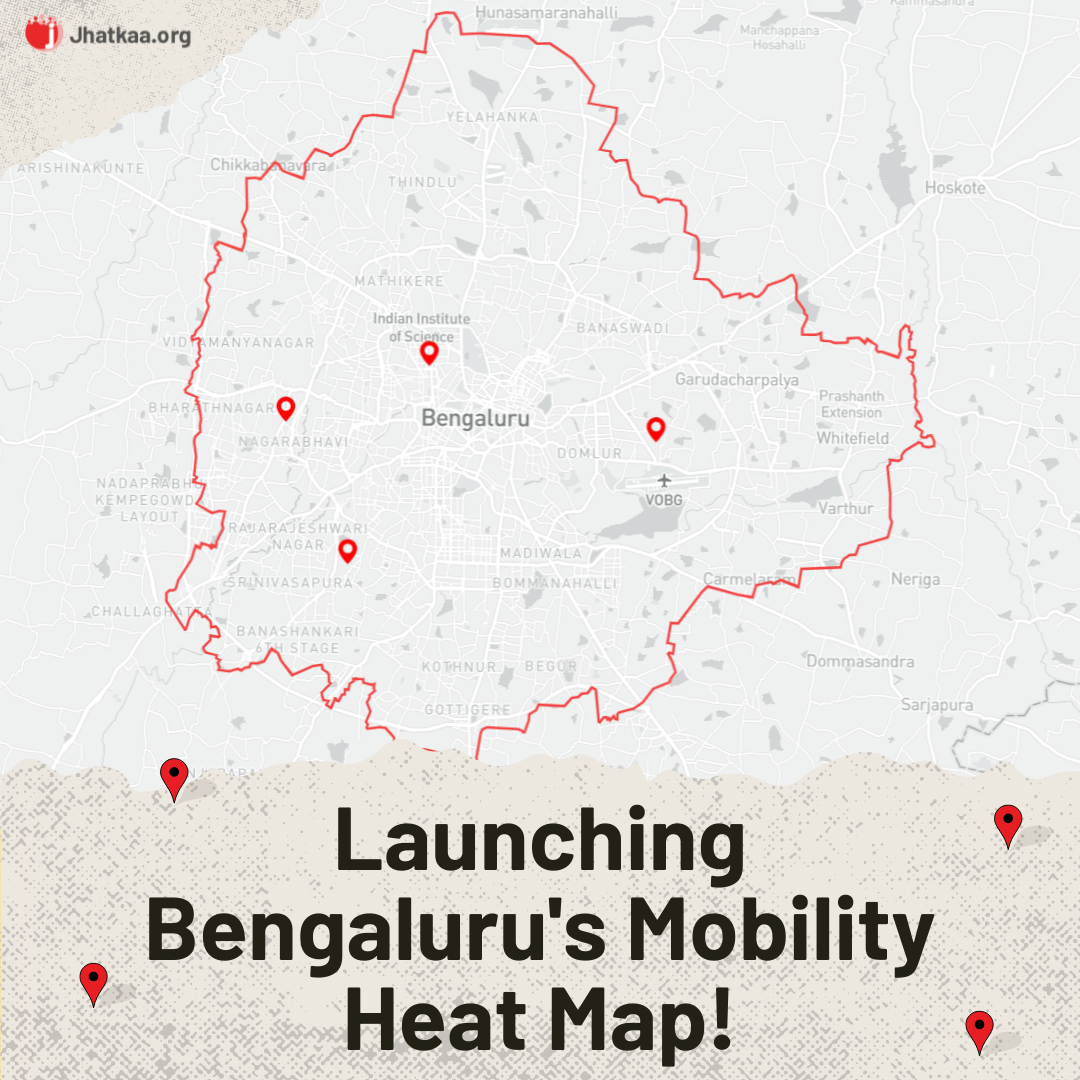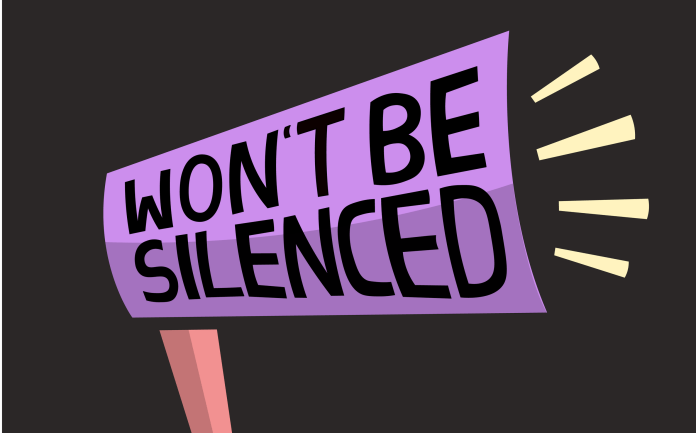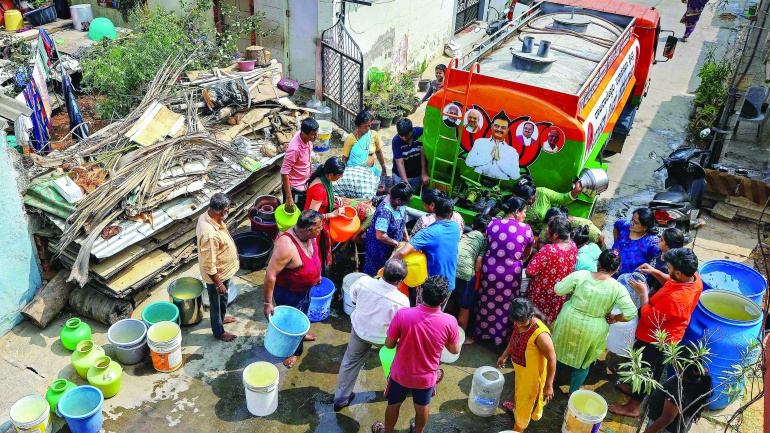Bengaluru faces significant challenges in terms of safety and accessibility.
One of the key problems in Bengaluru is its overburdened road network. The city experiences heavy traffic congestion, leading to increased travel times, pollution, and road accidents. Moreover, the city is unsafe for pedestrians, cyclists and disabld folks as there is hardly anypedestrian-friendly infrastructure.
These problems are rampant and at Jhatkaa.org we believe that it is essential to gather this data of issues people face with Bengaluru’s infrastructure so that we can take these complaints to the local municipality, Bruhat Bengaluru Mahanagara Palike (BBMP) and have them address these.
For this, we have launched Bengaluru’s Mobility Heat Map.

What is the Mobility Heat Map?
The Mobility Heat Map is a website developed by Jhatkaa.org to crowdsource data about safety and accessibility issues on Bengaluru’s streets and encourage decision makers to resolve them.
How does it work?
Once a citizen reports an issue, Jhatkaa.org’s team takes it to the concerned authority to make them aware of it so that they can intervene with solutions.
Why is this important?
Everyone deserves a safe and accessible city.
The platform encourages citizens to come together and build a relationship with Bengaluru’s roads to understand how they can become more people-friendly.
This engaged citizenry is an important pillar of democracy which ensures that we hold decision makers accountable to our vision of a future city.
What happens after I report an issue?
After you report a relevant issue, Jhatkaa.org will look into it and take it to the concerned authority who can work on it.
Our campaigners will coordinate with these bodies to make them aware of your problem and take status updates on the progress.
How can I be involved?
There are various ways to be involved with the project. You can choose to be a partner, ambassador, volunteer or patron by going to the Heat Map Website and expressing interest there.
Partner
If you are a civil society organization, business, highly engaged citizen, a member of the Resident Welfare Association, citizen group or anyone who deeply works with people or pedestrianization in their area, reach out to us for a partnership.
As a partner, we collaborate with you to work in your area. You crowdsource safety and accessibility related problems in your area and we work with decision makers to get them addressed.
Additionally, you/we can also conduct sessions to train people to effectively crowdsource data.
We are open to all kinds of partnerships and are enthusiastic about hearing your ideas!
Ambassador and Volunteer
As an ambassador, you will be incharge of looking for and reporting problems long term.
You can make your own team of volunteers or work with some of our existing ones to go around the city and shed light on issues of safety and accessibility.
You also get a chance to be involved in meetings with those in power to take these issues to them for resolution
Ambassadors and volunteers work with the Jhatkaa.org team more closely, build leadership qualities and new skills and get certificates and goodies for the same.
Patron
Donations support our extensive campaign activities and enable us to continue working for good.
You can support this project and keep it running by becoming a patron.
By collecting data on our city’s infrastructural issues, city authorities like the BBMP can identify bottlenecks, prioritize improvements, and allocate resources effectively. On the other end, campaigners at Jhatkaa.org can push authorities to implement those solutions.
Citizen involvement in the data collection process plays a vital role in building a more inclusive and accessible city. Citizens have firsthand experiences of the challenges they face in their daily lives, and their input can provide valuable perspectives.
Furthermore, citizen-generated data can act as a powerful tool for advocacy and collaboration. When citizens have access to data that reflects the reality of infrastructure and transport problems, they can effectively communicate their concerns to local authorities and decision-makers. This data-driven approach strengthens the dialogue between citizens and policymakers, leading to more informed and inclusive decision-making processes.
Thus, we hope that Bengaluru’s citizens will come together to report their problems so that we can engage with the BBMP to advocate for better solutions!



